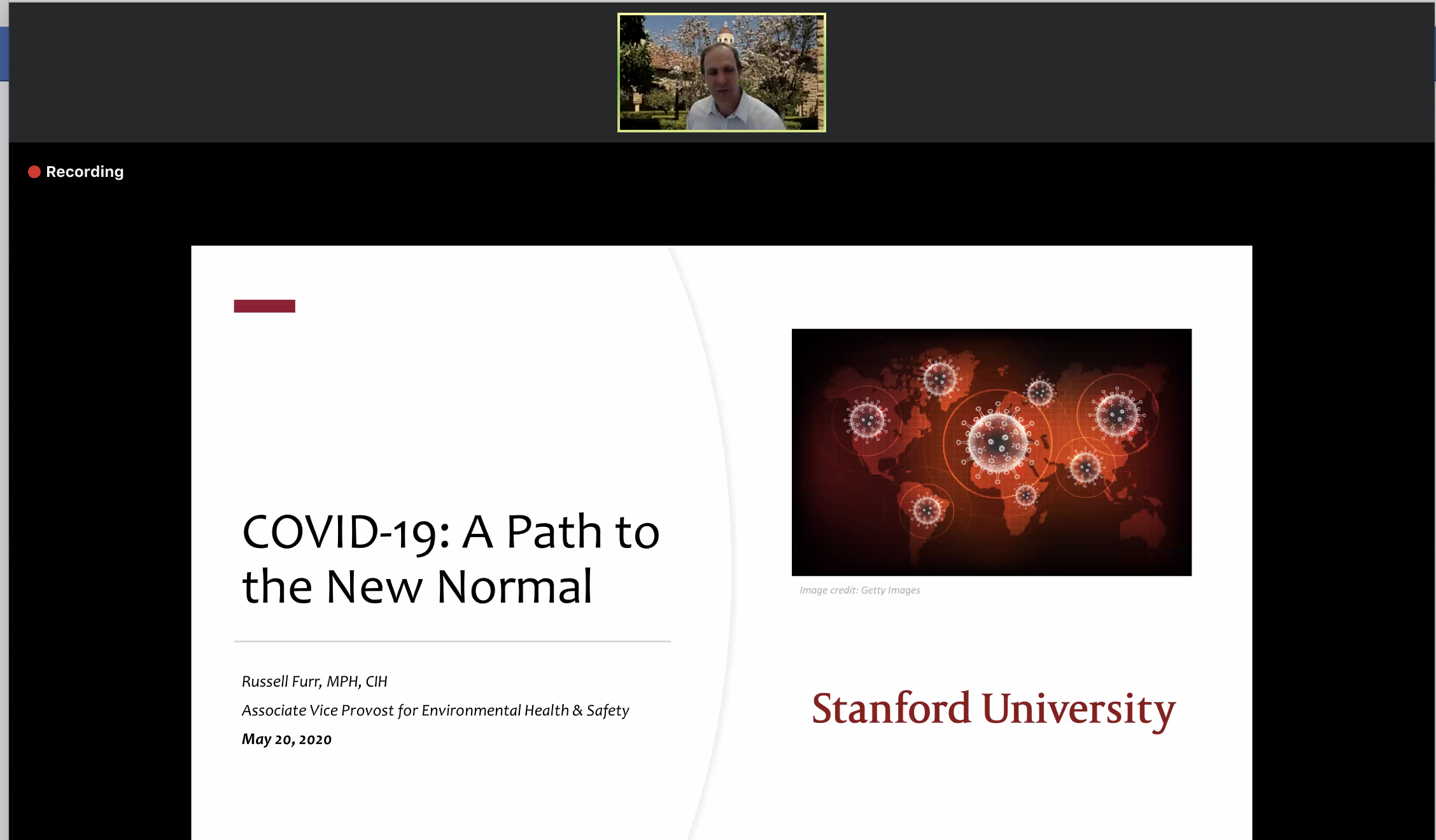At Stanford’s second COVID-19 town hall on Thursday, community leaders and medical professionals discussed what a “new normal” — resuming activities amid COVID-19 — could look like. Both education and healthcare would need to be redesigned with COVID-19 in mind, panelists said, describing the importance of distance and protection in resuming education.
Associate Vice Provost for Environmental Health and Safety Russel Furr said that moving toward a “new normal” would require three steps: changing the environment, changing behavior and redesigning processes. Furr said implementing these measures with the goal of keeping disease transmission low would be crucial for everyday activities to resume.
Furr said changing the environment could involve enhancing cleaning or installing signage markings reminding customers to maintain social distancing in stores. Changing behavior could involve wearing masks, improving personal hygiene and maintaining discipline in social distancing. Redesigning processes could mean rethinking how students can live in dorms, as well as how education is conducted.
But even with these changes, Furr said, not all activities would be able to resume.
“The truth is there are some things we will have to do without for the time being,” Furr said. “But it doesn’t mean we can’t work our way back to a substantial normal and doing a large amount of what we would normally do, things like having our kids go to school.”
San Mateo County Superintendent of Schools Nancy Magee said the resumption of education in the K-12 schools requires: personal hygiene, face coverings, physical distancing and control of congregations.
Reopening will need to include daily health checks and physical distance in classrooms, according to Magee.
“How many students can you fit in a classroom — that sounds like a test question — and still maintain your six feet of physical distancing?” Magee asked.
The solution might be in outdoor spaces, Magee said, pointing to solar-covered parking lots in San Mateo high schools that are being considered as possible outdoor classrooms.
San Mateo County schools are currently working on a group purchase of personal protective equipment for staff, students and parent volunteers. The county’s goal is to have a plan in place four weeks before the start of the next school year on how to resume instruction, according to Magee.
Test runs of the education in the “new normal” will take place in some of San Mateo schools this summer. The process will include a “bubble cohort” of 12 children who will spend four weeks with the same teacher.
Testing and healthcare
Panelists also discussed how testing could be conducted more effectively and how healthcare could be delivered safely.
Stanford Healthcare Chief of Staff Megan Mahoney said increased testing and telehealth medicine would be key parts of the “new normal.”
Mahoney also pointed to the importance of testing for asymptomatic COVID-19 carriers in reducing the spread of the disease. Mahoney said testing should be prioritized for older people, those with chronic diseases, those known to have been exposed to a confirmed case, those residing in a congregate living environment and those working essential jobs.
Medicine and law professor David Studdert cautioned against using antibody testing to guide policy. All panelists supported the notion that even generous estimates about the percentage of people who have antibodies are not high enough to confer herd immunity.
A Stanford seroprevalence study to determine the percentage of the population with COVID-19 antibodies estimated that between 2.49 and 4.16% of Santa Clara County had been infected as of early April. The accuracy of this study, however, has been questioned by various statisticians.
Studdert said that scientific uncertainty about the accuracy of the tests and whether COVID-19 antibodies conferred immunity should give policymakers pause about using test results to guide action.
“Oversight of antibody testing is going to have to improve,” Studdert said. “We’re going to need consensus standards for acceptable levels of test accuracy.”
Contact Anastasia Malenko at malenk0 ‘at’ stanford.edu.
